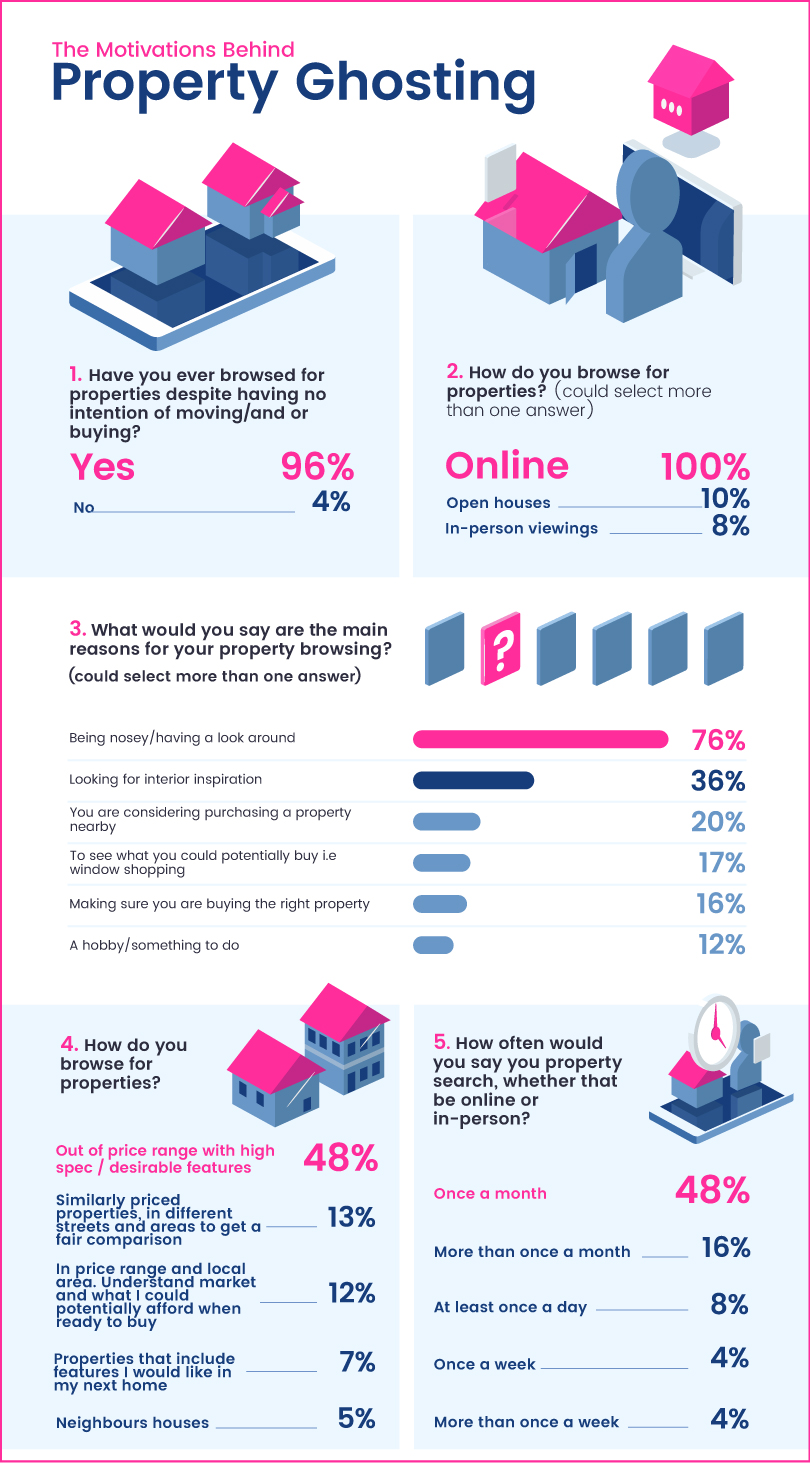It’s time to admit that we are all slightly obsessed with real estate, whether it be lusting after properties way out of our price range, pining over elegantly decorated rooms on Pinterest, big beautiful gardens or dreaming of grand picturesque front doors in various coloured hues. But how serious are you about actually moving and buying a new home?
We’re all guilty of window-shopping lavish properties, but how many of us are culpable of ‘property ghosting’?
Often associated with the world of dating, ‘ghosting’ has been coined as the term used to describe the act of cutting all communication with someone, with zero warning or explanation. Whilst ‘property ghosters’ are defined as people who show an interest in a property/properties and then unexpectedly ‘ghost’ the estate agent, vendor or seller.
Determined to find out, commercial estate agents Savoystewart.co.uk conducted a survey, asking 1,614 property savvy Brits about their house browsing habits.
Savoy Stewart also spoke to 32 industry experts from leading estate agents gain further insight into the notion of ‘property ghosting’.
It was found that a staggering 96% of Brits admitted to looking at properties despite having no intention of moving or buying.
Unsurprisingly, online house hunting was revealed to be the most popular with ALL participants stating this was their first port of call (100%). Additionally, 10% also confessed to attending open houses and a further 8% going to in-person viewings for properties they have no intention of buying.
When asked what was the main motivation behind property viewing, 76% candidly confessed to simply ‘being nosey/having a look around’. With a further 36% stating they browse property listings to ‘look for interior inspiration’.
Other notable motivations included the following:
‘Considering purchasing a property nearby’ (20%), ‘Window-shopping’ (17%), ‘Making sure you are buying the right property’ (16%) and finally ‘A hobby/something to do’ at 12%.
Interestingly, nearly half of Brits confessed to actively looking for homes that were ‘out of price range with high spec and desirable features’ (48%). With the most popular features including: a swimming pool, home gym and having previously been owned by a celebrity.
With 48% of Brits openly professing to looking at properties at least once a month, despite having no desire to move to a new house, it, therefore, comes as no surprise that estate agents are becoming increasingly aware of window-shopping enthusiasts.
Savoy Stewart can reveal some of the biggest ‘red flags’ or indicators that someone is ‘property ghosting’ include the following:
1) They don’t want to give out multiple points of contact, e.g. mobile, home, office number or email address.
2) They don’t really know what they’re looking for when asked qualifying questions, e.g. budget, likes/dislikes, building preference, must-have features.
3) They get offended when asked personal questions, e.g. are you a working professional or a student.
Savoy Stewart spoke exclusively to a representative from Winkworth* who shared an insight into the best way to handle potential ‘property ghosters’:
“I’ve been working in the industry for close to 5 years and previously being a negotiator myself, I find that the best thing to do is to treat each applicant and enquiry exactly the same. As long as you follow the protocol and ensure you’ve asked the qualifying questions, it tends to make it clear who is serious about looking and who is purely window-shopping.
After being ‘ghosted’, the best thing I’ve found is trying to touch base once a week directly after the date of their enquiry or viewing. After that, we’ll send them a courtesy email or call at the 6 month mark but then they’ll be archived.”
* The views and opinions expressed are not those of Winkworth as a whole but represent wider findings from estate agents in England who identify property ghosting as an issue.
Image Credit: https://savoystewart.co.uk/.


